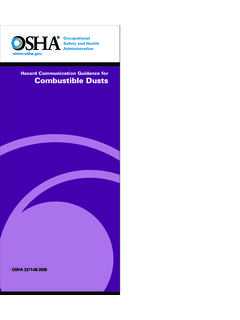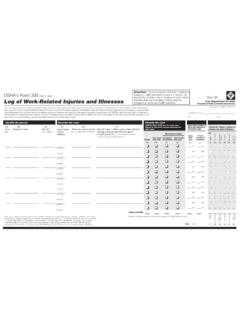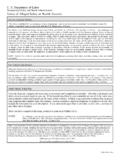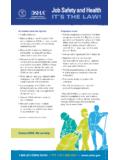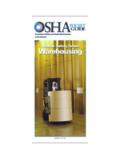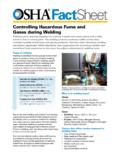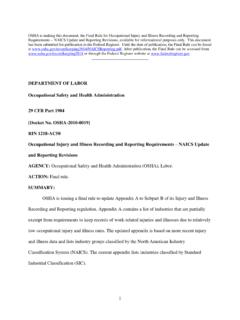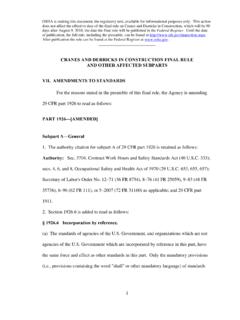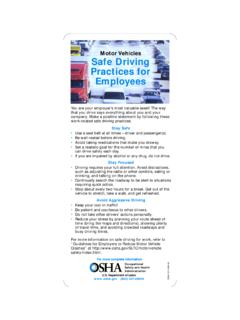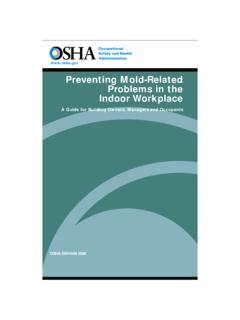Transcription of LaboratorySafety Facts - Occupational Safety and Health ...
1 QuickFacts Laboratory Safety Chemical Fume Hoods The fume hood is often the primary control device for protecting laboratory workers when working with flammable and/or toxic chemicals. osha 's Laboratory standard (29 CFR ) requires that fume hoods be maintained and function properly when used. Before using a fume hood: Make sure that you understand how the hood works. You should be trained to use it properly. The fume hood Know the hazards of the chemical you are working with; is often the refer to the chemical's Material Safety Data Sheet if you primary control are unsure. device for protecting Ensure that the hood is on. laboratory Make sure that the sash is open to the proper operating workers when level, which is usually indicated by arrows on the frame.
2 Working with Make sure that the air gauge indicates that the air flow is flammable within the required range. and/or toxic chemicals. When using a fume hood: Never allow your head to enter the plane of the hood opening. For example, for vertical rising sashes, keep the sash below your face; for horizontal sliding sashes, keep the sash positioned in front of you and work around the side of the sash. Use appropriate eye protection. Be sure that nothing blocks the airflow through the baffles or through the baffle exhaust slots. Elevate large equipment ( , a centrifuge) at least two inches off the base of the hood interior. Keep all materials inside the hood at least six inches from the sash opening. When not working in the hood, close the sash.
3 Continued on page 2. For assistance, contact us. We can help. It's confidential. SIM. Occupational Safety and Health Administration 1-800-321-6742. osha 3407 Rev. 10/2011. DSG. QuickFacts Laboratory Safety Chemical Fume Hoods continued from page 1. Do not permanently store any chemicals inside the hood. Promptly report Promptly report any hood that is not functioning properly any hood that is to your supervisor. The sash should be closed and the not functioning hood tagged and taken out of service until repairs can properly to your be completed. supervisor. When using extremely hazardous chemicals, understand your laboratory's action plan in case an emergency, such as a power failure, occurs. For assistance, contact us.
4 We can help. It's confidential. SIM. Occupational Safety and Health Administration 1-800-321-6742. osha 3407 Rev. 10/2011. DSG.
